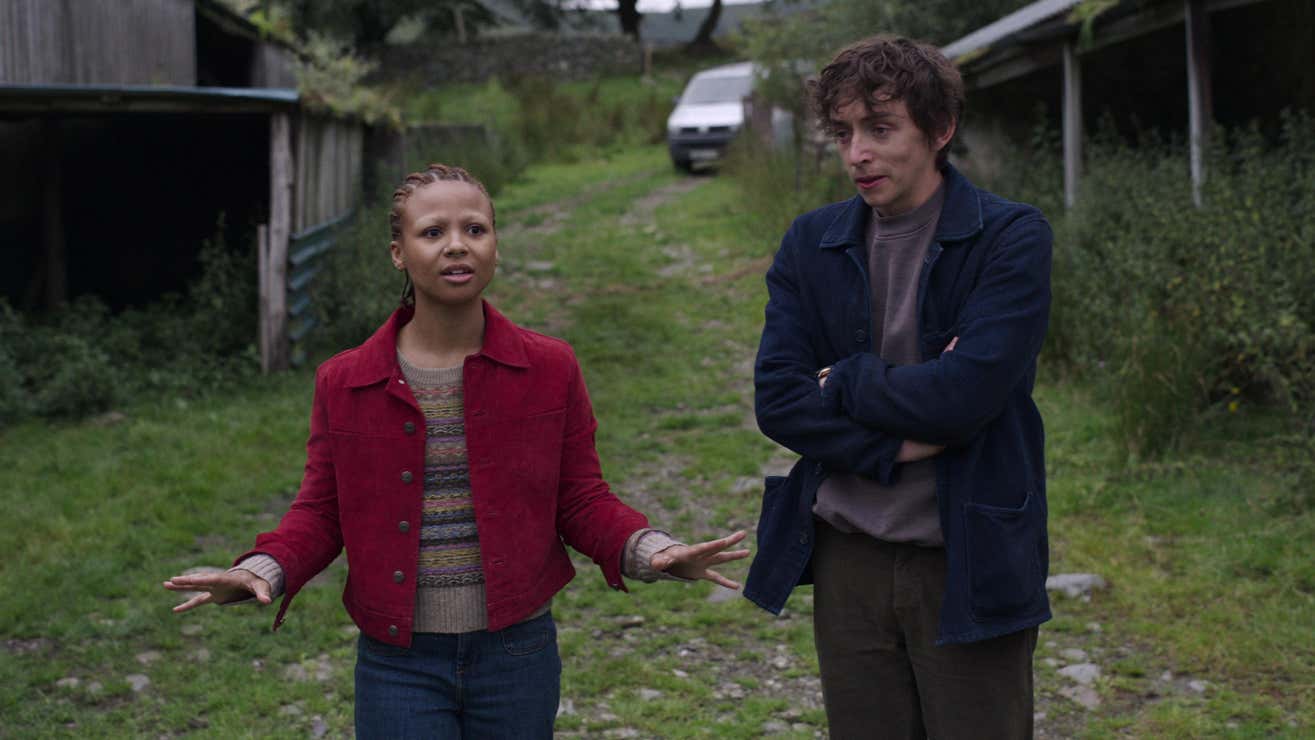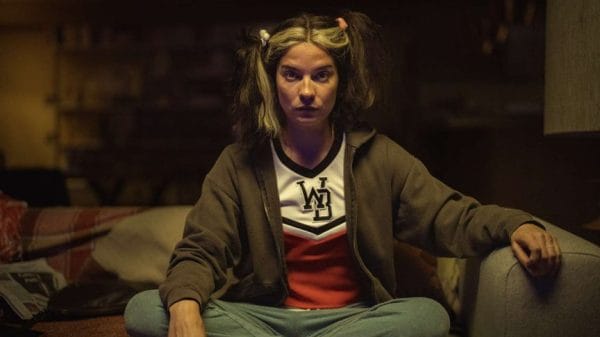After a four-year wait, the sixth season of Black Mirror returns with a surprising twist, deviating from its usual focus on technology to explore the corruptibility of humankind.
This shift in tone is evident in the season’s episodes, which take their time to delve into the driving forces behind our everyday transgressions. Rather than relying heavily on modern tech, two episodes strip away the technological trappings and set their stories in the ’70s and aughts, holding up a black mirror to reflect upon ourselves.
The season kicks off with “Joan Is Awful,” starring Annie Murphy and Salma Hayek. It follows an average woman who discovers that a global streaming platform has created a trashy TV drama adaptation of her life. While the episode has moments of humor and intrigue, it may feel somewhat weaker compared to the rest of the collection. However, its exploration of privacy ethics and media consumption sets the stage for the following episode.
In “Loch Henry,” two young documentarians venture to a Scottish town to create a high-brow documentary but become obsessed with a local’s tale of a shocking true crime. The episode weaves a twist wrapped in mystery, leaving viewers with a sense of impending doom.

“Beyond The Sea,” the third chapter, takes us back into the darkness associated with Black Mirror, set in an alternative 1969. It follows two men on a perilous high-tech mission who find solace in the world of robotics. When tragedy strikes, one must find a way to help their colleague, leading to unforgiving final moments. The strength of this episode lies in the powerhouse performances, particularly from Rory Culkin, Kate Mara, and Aaron Paul.
Moving away from technology-focused narratives, the fourth episode, set in the aughts, centers around troubled starlet Mazey Day (Clara Rugaard) hounded by paparazzi. Bo (Zazie Beetz), an aspiring photographer, doggedly pursues Mazey but soon discovers there’s more to her downward spiral than meets the eye.
The season finale, “Demon 79,” transports us to 1979, where a lonely sales assistant accidentally summons a disco-clad demon, Gaap (Paapa Essiedu), who must convince her to carry out three human sacrifices to earn his demonic wings. With the threat of the end of the world looming, the episode combines twisted It’s A Wonderful Life vibes with a dose of eerie suspense.
The eclectic collection of episodes, varying in tone, genre, and subject matter, makes for a compelling binge-watching experience. While some episodes may feel longer than necessary and the show’s portrayal of streaming platforms may be seen as ironic given its Netflix partnership, Black Mirror continues to deliver thought-provoking narratives with impressive world-building and talented casts. The season strikes a balance between cinematic sheen and biting satire, ensuring viewers’ attention is fully captured. After a divisive fifth season, this return to form is a relief, leaving fans hopeful for the future of the series.
With its return to form, Black Mirror rekindles the charm of its early days while embracing the cinematic quality and talented casts that come with Hollywood backing. The impeccable satire at the core of the show remains intact, and creator Charlie Brooker skillfully utilizes the resources at his disposal to create more ambitious and emotionally resonant narratives.
While the show’s shift away from its usual exploration of technological advancements might disappoint some die-hard fans, the decision proves to be a refreshing departure that amplifies its thought-provoking nature. Black Mirror has always been more than just a cautionary tale about technology; it’s a reflection of our own humanity, the flaws and virtues that drive us. By shifting the focus to the corruptibility of humankind, the show manages to hold up a mirror that is pointed directly at us, forcing us to confront our own actions and motivations.
Amidst the serious themes and introspection, Black Mirror hasn’t lost its playfulness. There are still moments of unexpected humor and bizarre situations that will leave viewers both entertained and perplexed. The show continues to surprise and challenge its audience, demanding their full attention and immersing them in its unsettling and thought-provoking world.
As the sixth season comes to a close, fans can breathe a sigh of relief, knowing that Black Mirror has found its footing once again. It has reclaimed its status as a must-watch series, compelling viewers to put away their distractions and engage fully with its narratives. After the brief stumble of the fifth season, this return to form ensures that Black Mirror remains a shining gem in Netflix’s catalog.
With fingers crossed, fans eagerly anticipate what the future holds for the dystopian anthology. Will it continue to push boundaries and challenge our perceptions? Or will it surprise us with unexpected twists and turns? Regardless, Black Mirror has firmly established itself as a groundbreaking series that captivates audiences with its dark and introspective exploration of the human condition in an ever-evolving world.














